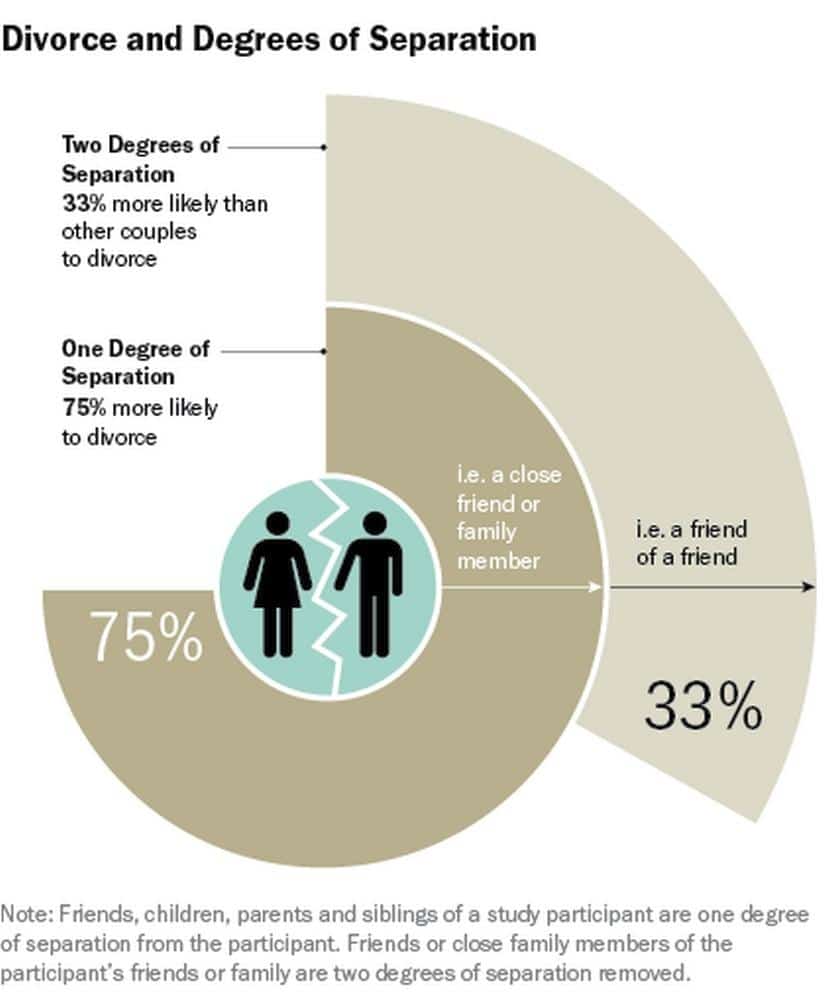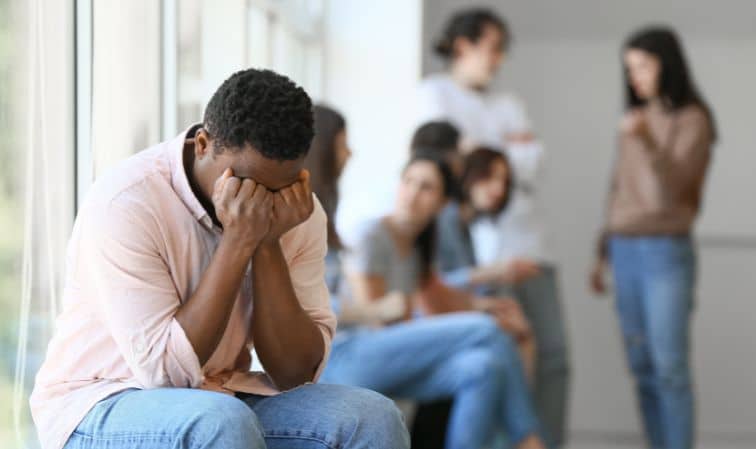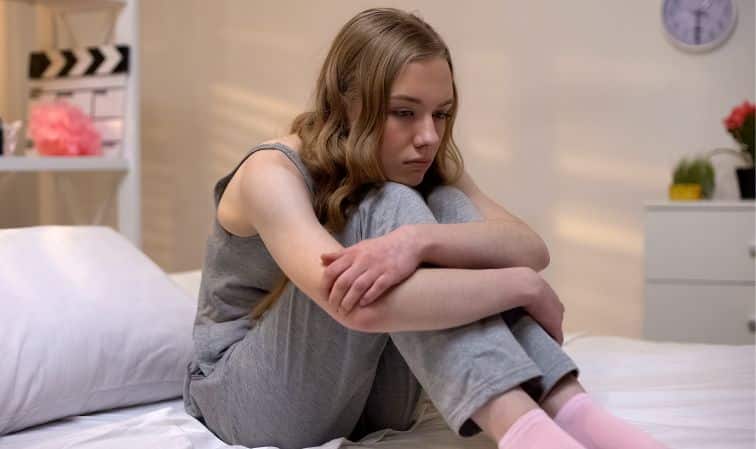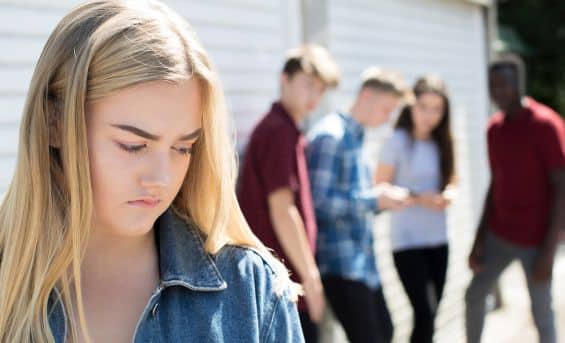“There is no such thing as a “broken family”. Family is family, and is not determined by marriage certificates, divorce papers, and adoption documents. Families are made in the heart.”
After a divorce, many people face the problem of communicating with friends. This is especially true for couples who have been in long-term relationships and had many mutual friends.
Changing patterns of communication with mutual friends
One of the effects of divorce on communication patterns with mutual friends is that people may become more cautious about what they share. Friends may be hesitant to disclose information about one party to the other for fear of causing conflict or exacerbating tensions between them. As a result, conversations may become less open than before or insincere.
Some friendships may become strained or even break off completely. This can happen if a friend is loyal to only one side or if there are lingering resentments after a breakup. On the other hand, some people are unable to maintain relationships with both parties because they cannot guarantee loyalty on their part.
The impact of a divorce on relationships with mutual friends can be great. While some friendships will remain the same, others will inevitably change as people adjust to new realities and try to understand the dynamics of change in their social circles.
The next statistic shows the effects of divorce on long-term friendships and relationships with mutual friends:

Choosing sides and losing friends as a result
Friends often lose friends if they cannot decide which spouse they support during and after a divorce. As a result, relationships with them become strained or even completely destroyed. Losing friends through a divorce can be especially difficult for those who have relied heavily on these connections for emotional support during difficult times.
While it is understandable that some mutual friends may take sides during a divorce, it is important to remember that this behavior can have long-term consequences, as highlighted by divorcenyonline.com. Favoring one person over the other can cause anger and hostility in social circles and lead to further isolation and loneliness for both parties. It is very important for all persons involved in a divorce to maintain open lines of communication with their mutual friends and not to put them in an uncomfortable position, if possible.
Feeling like an outsider
Feeling like an outsider can be especially difficult for couples who have been friends with the same group of people for many years. After a divorce, it can be difficult for mutual friends to reconnect and communicate outside of their previous social circle.
It’s important to keep in mind that navigating the complexities of divorce and friendships can be challenging, but with time, individuals can learn to adjust to their new circumstances and form meaningful connections based on shared interests.
Long-term friendships and relationships with mutual friends after a divorce can be difficult. It is important that all parties involved follow these guidelines:
- maintain open communication;
- respect boundaries;
- avoid taking sides unnecessarily;
- seek to reconnect where possible, recognizing that some changes may be permanent.
Finding ways to move forward positively will benefit everyone involved in the long run.

Struggling to remain neutral
Another challenge mutual friends may face after a divorce is trying to remain neutral. They may feel pressure from both sides to choose one person over the other, even if they don’t want to. This can significantly deteriorate their relationship with both spouses.
Mutual friends need to remember that they are not responsible for the outcome of the divorce and that it is okay to remain neutral. You can support both parties without taking sides or getting involved in their personal disputes. Friends can offer emotional support without feeling obligated to choose.
In some cases, mutual friends may need to completely detach themselves from the situation after a divorce. It is normal for certain individuals to need space or time away from each other while they adapt to new realities. In such cases, it is important that all parties involved respect each other’s boundaries and avoid putting additional strain on already strained relationships.
Difficulties in coordinating events or meetings
Another potential problem that can arise after a divorce is difficulty coordinating events or meetings with mutual friends. Scheduling conflicts can arise if one party is uncomfortable attending an event where the other will be present, which leads to tension for all involved. This can make it difficult for mutual friends to plan social outings, dinners, or group events without worrying about causing conflict.
This impact can also manifest itself in changes to traditional holidays. Family holidays such as Thanksgiving or Christmas can become more difficult as people need to quickly adapt to new traditions and new people. It is important for all parties involved to be flexible and open-minded when planning such events so that everyone feels comfortable.
In such a situation, some friendships may remain unchanged, while others inevitably change as people adjust to new realities and try to understand the dynamics of change in their social circles. The ways of positive development after separation depend on certain behaviors of people, they should
- maintain open communication;
- respect boundaries;
- avoid taking sides unnecessarily;
- strive to reconnect;
- realize the permanence of change.

Increased feelings of loneliness or isolation
Maintaining friendship after divorce is not easy, especially if they have stopped communicating. People may feel lonely or isolated after the end of their relationship as they navigate new social dynamics and try to reconnect in different ways.
It is important to remember that feelings of loneliness or isolation are normal during a period of transition, and there are steps people can take to mitigate these emotions. One option is to seek support from a therapist or counselor who can provide guidance on how to cope with the emotional effects of divorce, as well as develop new strategies for building healthy relationships outside of previous social circles.
Another effective strategy for staying friends after divorce is to actively seek out new opportunities to socialize outside of the company. This may include:
- joining clubs or organizations centered around hobbies or interests that are not related to past relationships;
- doing volunteer work in your community;
- Attending networking events designed specifically for single people looking to make new connections.
Overcoming the impact of divorce on relationships with mutual friends requires effort, patience, and compassion on the part of all parties involved. By approaching these challenges thoughtfully and actively seeking opportunities for growth and connection, people can begin to build fulfilling lives even after significant life changes.

Awkwardness when meeting friends of an ex-spouse by chance
Another problem is the awkwardness of running into friends of your ex-spouse. Meeting someone who was once a close friend can be awkward and cause feelings of sadness, anger, or resentment.
In such situations, it is important to remember that a mutual friend most likely does not intend to cause discomfort or pain. It’s okay to acknowledge the situation and politely move away if necessary, but you can also try to maintain a sincere relationship based on shared experiences outside of a past romantic connection.
Some people may find it helpful to take a break from certain social events or activities where there is a high probability of meeting their ex-spouse or their friends until they feel ready to handle these types of interactions again.
Coping with social situations involving mutual friends after divorce requires
- patience
- understanding; and
- empathy for the experience of others while remaining true to your own boundaries and needs.
Taking the time and effort to reconnect will help all involved move forward positively.
Social media can play an important role in preserving friendships after a divorce. Through the use of platforms such as Facebook, Twitter, and Instagram, people can stay in touch with their mutual friends without feeling like they are invading their privacy. They also provide people with a safe space to communicate without having to worry about any awkwardness that might arise during face-to-face interactions.
Social media can also have a negative impact on friendships after a divorce. Seeing photos or updates from ex-partners or mutual friends who chose the other side during the divorce can cause anxiety and resentment. Social media is notorious for spreading rumors and misinformation quickly, which can further damage relationships.
While the Internet has some advantages when it comes to maintaining friendships, it is important to proceed with caution and tolerance for the feelings of others. It is important for all parties involved to understand that online communication should not replace face-to-face conversations, but rather serve as an additional tool to maintain connections.
The importance of open and honest communication with mutual friends
One of the most important factors in maintaining friendships with mutual friends after a divorce is open and honest communication. It is very important to keep all lines of communication open, even if it sometimes feels awkward. Avoiding conversations about the breakup can lead to misunderstandings, resentment, and further breakups.
It is important to remember that friends are not therapists, mediators, or judges. They can be an important source of support in difficult times. You can talk openly and honestly about what you are going through and how you feel. And friends can be emotionally supportive without getting involved in any drama or conflict.
Divorce can have far-reaching consequences for long-term friendships. The key to maintaining these bonds is to communicate openly, respect boundaries, and avoid taking sides unnecessarily while seeking to reconnect wherever possible. With time and effort, all parties involved will be able to maintain their previous ties despite significant changes in their lives.




